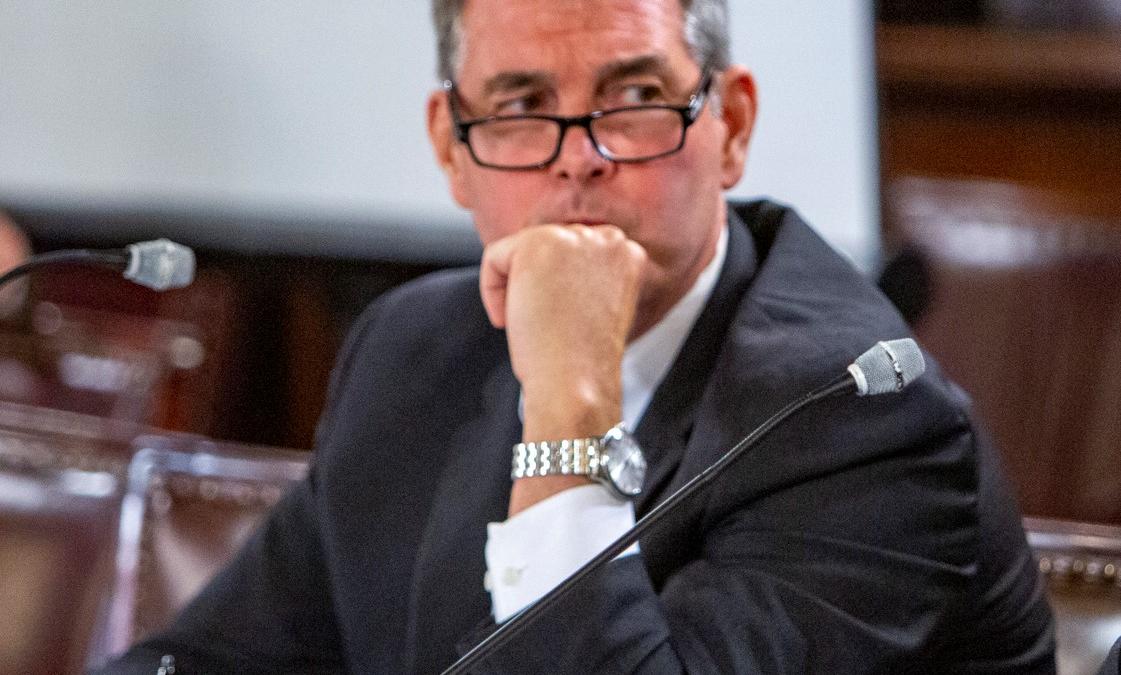What are the critical issues facing police these days?
I reached out to Scott L. Bohn, the executive director of the Pennsylvania Chiefs of Police Association, and asked him.
“There are a number of issues,’ Bohn replied. “One of which is certainly addressing the perception of police work post-Floyd. We are still working and dealing with that.”
Bohn also noted that the defunding the police movement, use of force, and police oversight are other critical issues.
Bohn said that with 1, 062 municipal law enforcement agencies in the commonwealth of Pennsylvania, their association’s basic mission is promoting excellence in service and expertise in law enforcement and public safety services.
“We advocate for law enforcement leaders and provide a number of programs and training for our members, in addition to keeping the law enforcement executives informed of not only what is happening here in the capital by way of legislation, but also the changes or cases that may impact them on both the federal and state level,” Bohn said.
“I spent 35 years on the job, and for my last 20, I was the chief in West Chester. When the executive director position came open, I was ready for a new challenge, and I hoped to have an even larger impact on law enforcement.”
Within three months, the U.S. was hit with the COVID-19 pandemic, so for Bohn, it has been an interesting nearly two years.
“I’m asked frequently what my opinion is on defunding or appropriating law enforcement,” Bohn said. “We’re seeing this in every major city in the United States. I think that premise is impulsive and counterproductive to the issues that really require a systematic set of solutions,” Bohn explained. “The concept, whether called firing the police or reimaging the police, has different meanings to everyone. But I think the common theme involves cutting funding from police departments budgets.”
Regardless of the municipality, whether it be the city of Philadelphia, or in Harrisburg, Bohn stated that the costs of providing police services is one of the most costly, if not the most costly budget item.
“What we should be doing is encouraging and embracing systemic reforms that improve police training, policies, procedures and technology. That requires financial resources. That needs a commitment from police executives and our leaders, but also from our elected officials and our communities,” Bohn said. “The reallocations away from law enforcement will further reduce their ability to implement those positive changes that are appropriately being called, and in many cases, being legislated, across the country. It will impair the progress and disrupt the work that must be done to combat injustice, real or perceived, and combat violence that does exists.”
Bohn said often one does not look at all the variables that police end up being responsible for, such as employment, equal opportunity, education, vocational training, health care, mental health services, social services, voting security, housing, homelessness, substance abuse, recover services, and reduction in state and local budgets. All, according to Bohn, have a bearing on law enforcement.
Bohn said it was a challenge to be a police officer today, but with every challenge there is an opportunity. He said he didn’t think there was anything more honorable than public service, and the overwhelming majority of officers go into law enforcement for all of the right reasons.
I noted that some communities are more anti-police than ever, and with the wide ability of people to record police action on their telephone, cops are not always viewed in a flattering light.
Bohn said that like most officers, he advocates the use of body cameras, but obviously that comes with a financial cost. He stated that with the increased usage of cameras in everyday life, you should always assume that everywhere you go, and anywhere you are, you are probably being filmed.
“There are times when police must use force to ensure the safety of the community. Those actions must be justifiable, visibly objective, and appropriate. Police use tremendous discretion in determining when force may be necessary,” Bohn said.
Bohn said that officers will begin with just their presence, then give verbal commands, and employ de-escalation techniques before they engage in physical force. He noted that out of the millions of service calls, the data suggests that law enforcement’s use of force rate is less than one percent.
“While I think it is critically important for communities and elected officials to provide oversight of the law enforcement function, I don’t think we should politicize the law enforcement function,” Bohn said. “We all share a common goal, which is reducing crime in our communities and improving the quality of life for the people who live in those communities.”
Paul Davis’ Crime Beat column appears here each week. He can be contacted via pauldavisoncrime.com.





